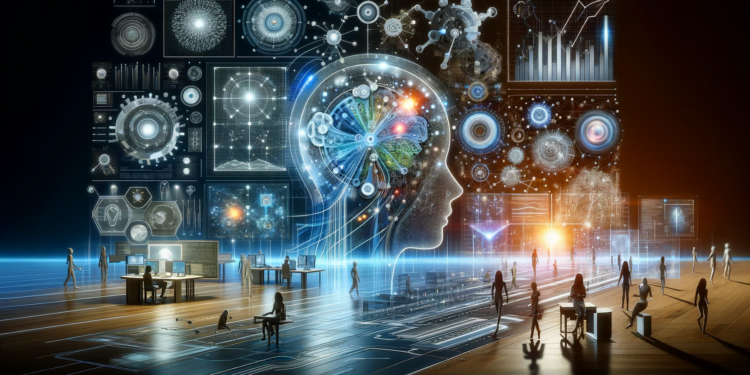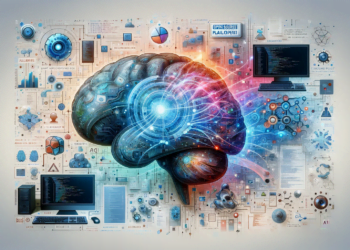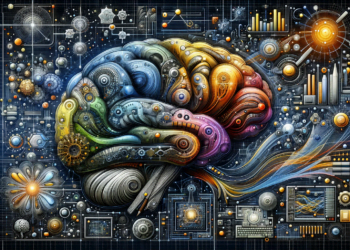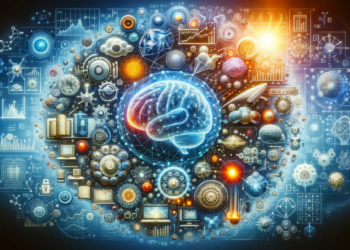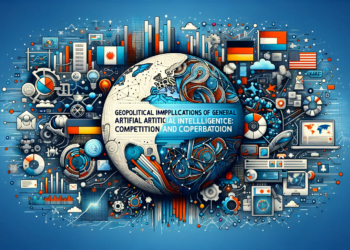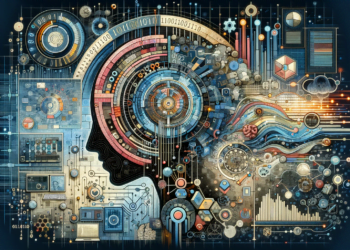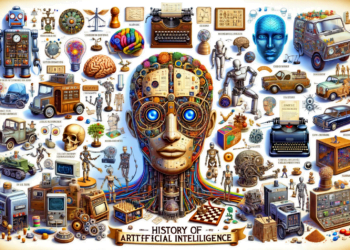The pursuit of Artificial General Intelligence (AGI) represents a horizon that inevitably compels us to rethink the boundaries of non-biological cognition. As the potential pinnacle of intelligent systems, AGI is characterized by its intrinsic ability to perform any intellectual task that a human can. Unlike its narrow counterpart, AGI is not confined to specific domains, pre-established patterns, or bounded tasks, but boasts versatility, learning, and adaptation similar to human cognition.
Emergence of Hybrid Deep Learning Models
At the technical forefront, the hybrid approach between different deep learning architectures is carving out a promising niche towards AGI. With the integration of Convolutional Neural Networks (CNNs), designed for computer vision, alongside Recurrent Neural Networks (RNNs), which excel in sequential processing, we now have architectures like Long Short-Term Memory Networks (LSTMs) that allow for more sophisticated handling of data sequences and can pave ways towards task generalization.
Targeted Advances in Model Training
The scalability of neural network training has witnessed remarkable evolution through techniques like transfer learning, where models pretrained on one task are adjusted for another. This not only optimizes the learning process but also opens the door for previous knowledge to be applied in varied contexts, bringing us closer to a more generalist form of learning.
On the other hand, reinforcement learning has led to systems like DeepMind’s AlphaGo, which learn optimal strategies from interacting with the environment, and these can be considered as a step towards the adaptability and autonomy characteristic of AGI.
Brain-Computer Interface and Incremental Learning
The study of brain-computer interfaces is providing crucial insights into how biological machinery processes information and adapts to new knowledge. These studies have the potential to inform the learning schemes for AGI, especially when it comes to incremental learning: the ability to learn continuously without forgetting previous knowledge, which still poses a significant challenge known as the “catastrophic forgetting” problem in machine learning.
Evolutionary Algorithms and Multi-Objective Optimization
Emerging approaches in the development of evolutionary algorithms, inspired by biological evolution, are addressing the design of AI algorithms that evolve over time, adapting and optimizing multiple goals simultaneously. This multi-objective optimization mimics the multifaceted and sometimes contradictory nature of human problems, providing an experimental platform for algorithms that must balance conflicting criteria without direct human intervention.
Merging Symbolic with Subsymbolic
Symbolic processing, which dominates the spectrum of traditional artificial intelligence, and subsymbolic processing, where deep learning has harvested its greatest successes, are converging in hybrid systems that attempt to encapsulate the best of both worlds. These systems are starting to exhibit generalization capabilities beyond explicit patterns and data, suggesting methods of reasoning and deduction that are more abstract and generalized.
The Role of Robotics in AGI
Robotics offers fertile ground for AGI due to the intrinsic need to interact with a changing and unstructured world. Advancements in mobile robotics and autonomous manipulators supported by advanced perception and adaptability are outlining how intelligent agents might operate in real environments and carry out a diversity of tasks with human-like dexterity.
Challenges and Future Projections
While the advancements described signal a promising future, there are limitations that require attention. Scalability of learning, the need for large amounts of energy and data, as well as ethical and security challenges are just a few examples. As algorithms become more complex, their interpretability and the possibility of auditing their decisions become critical.
AGI also benefits from an ecosystem of massive and varied data sets. The generation of high-fidelity simulation environments, along with the use of large cross-sectional data sets, could accelerate the pace of innovation. Here, the need to establish regulatory frameworks and governance becomes imperative to ensure that the development of AGI is aligned with human values and goals.
Relevant Case Studies
The trajectory of platforms like OpenAI’s GPT-3, with capabilities ranging from text generation to programming problem solving, illustrates how the integration of large models and appropriate learning schemes can converge towards a nascent form of AGI. Applications ranging from personal assistants to medical diagnostics provide glimpses into how AGI could integrate into our daily lives and professions.
As we consider these developments and challenges, the scientific community faces the task of not only advancing the technique but also guiding innovation in a responsible and sustainable manner. Such is the complexity and magnitude of the promise of Artificial General Intelligence: a journey that awakens both hope and caution in its inexorable advance.

